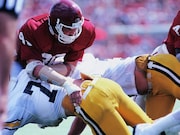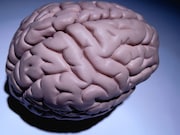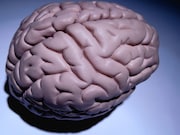Tag: Traumatic Brain Injury
Regional Brain Atrophy ID’d in Patients With History of TBI
Volume loss seen in multiple regions, especially ventral diencephalon, putamen, and pallidum
Risk, Severity of CTE Increase With Years of Football Played
Risk for developing chronic traumatic encephalopathy increased by 30 percent per year of football played
Plasma Marker May Help Detect Traumatic Brain Injury
Plasma levels of glial fibrillary acidic protein higher in those with CT−, MRI+ versus CT−, MRI− findings
Traumatic Brain Injury May Up Risk for Suicide in Veterans
Degree of severity can influence link between TBI and risk for suicide, risk for suicide by firearm
Predictors of Recovery After Brain Injury Identified
Years after traumatic brain injury, patients still perform significantly worse on cognitive measures
EEG May Detect Brain Activation in Some Unresponsive Patients
Clinically unresponsive brain-injured patients with EEG response to spoken commands might improve
EEG May Detect Brain Activation in Some Unresponsive Patients
Response to spoken commands might improve on EEG for clinically unresponsive brain-injured patients
Functional Limitations Persist One Year After Mild TBI
Fifty-three percent of patients with mild traumatic brain injury report functional limitations at 12 months
ED Utilization Up for Pediatric mTBI After TBI Legislation
Proportion of ED visits increased from five years before to after legislation
Prevalence of TBI 2.5 Percent Among U.S. Children
Children with lifetime history of TBI are more likely to have variety of health conditions














